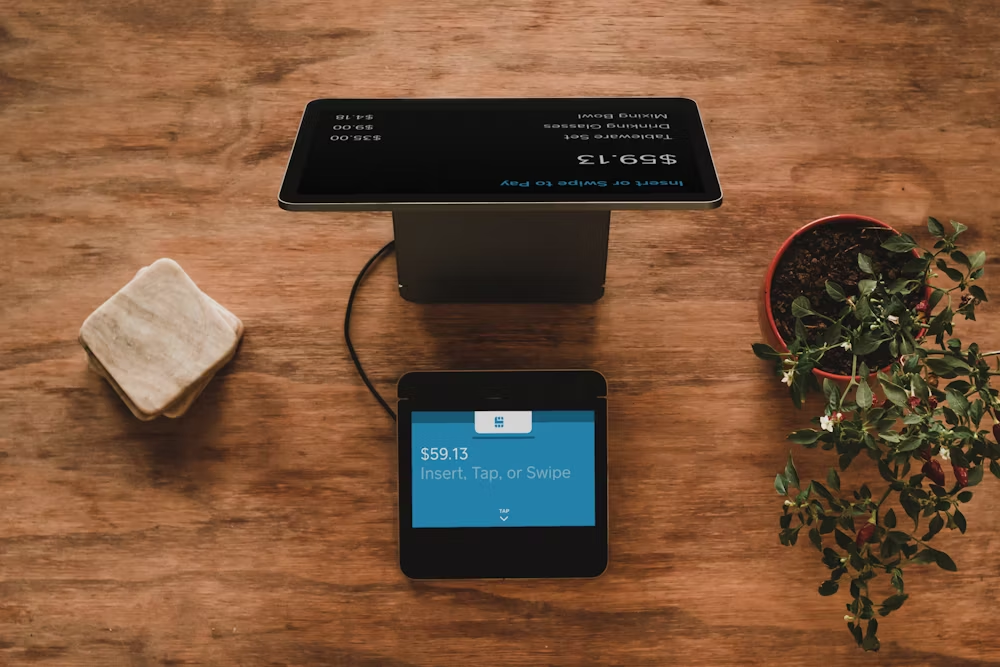A point-of-sale system is a key function of a hospitality business. When choosing a new one, operators should consider a system that fits both your budget and meets the required functions of your operation. This can depend on factors like the complexity of your restaurant. Cost is one of the most important factors in this decision, and with a plethora of options out there, these tips can help you narrow down the right product for your restaurant or hospitality business.
Ease of Use and Data
The first consideration one must take when deciding on POS software is ease of use. Decide the level of technical proficiency required for your business. Think about the nature of your restaurant and how your employees will use the POS software. This also means choosing one that can integrate into your workflow easily with minimal disruption.
Next, review what level of reporting you want for your POS system. Some POS systems are simple, but others present insight from sales that are instrumental in understanding the financial health of your operation. This is an important asset to understand when you have multiple locations. A POS system with integrated data functions can help you see top-performing menu items and year-over-year sales comparisons. This data can even help operators understand their inventory management. It is critical to choose a cloud-based POS system that gives you 24/7 access to your information.
When integrating data from your POS system, it is crucial to have a financial advisor who can help you understand the reporting and utilize it to its full potential. Paperchase is a tech-agnostic hospitality accounting firm that is well-versed in all major POS providers – with the ability to adapt and integrate to your preferred software with ease. Paperchase’s financial experts take the reports from your POS system and analyze the information to diagnose the health of your business and give tips to boost your revenue.


Paperchase can optimize your hospitality operation with day-to-day bookkeeping and accounting service. Learn how here.
Hardware and Other Functions
When considering the right POS system for your business, operators must decide on the physical specs that fit their needs. Many restaurants have transitioned to handheld POS systems that allow for streamlined transactions with guests and more efficient workflow for your FOH staff. Handheld POS systems prevent overcrowded server stations, reduce errors when placing orders, and enable easy check splitting. If you are a smaller restaurant, such as a coffee shop or a QSR establishment, you may want to ponder using one or two stationary POS platforms that integrate with your cash register. These are also referred to as a Computer POS or Virtual Terminal. Review the cost of your hardware. How expensive would it be to replace it? Would you prefer a POS system that can integrate into an iOS or Android device? Ensure your POS hardware has connectivity to print receipts or access cash drawers. Additionally, if your business offers retail, choosing software with a connected barcode scanner can speed up the workflow of your register station.
Your new POS system should have all the necessary capabilities to run your business efficiently. A system like this uses interfaces that connect to third-party delivery options and contactless payments. If your business uses digital loyalty programs, consider choosing software that can run these services rather than outsourcing from a third-party vendor. From here you can not only save money, but you can also get data about your customers that you can use to run promotions on popular items and determine what is performing well in your restaurant.
Some POS systems offer all-in-one capabilities. This includes inventory management products that allow for more efficient ordering and are tied into sales metrics. POS systems leverage CRM (customer relationship management) tools to personalize customer data to use for marketing and customer service communications. Most cloud-based systems will require use of the company’s merchant processing software. Ensure you read the fine-print before signing a contract to avoid higher credit card processing fees. Other additional functions of a POS system could be employee management software. Scheduling employees and managing payroll all under one program is essential for running a business with tight margins and streamlined communication.

Common POS System Providers
There is a plethora of POS providers out there, all with different capabilities to meet the needs of your business. Paperchase’s restaurant accountants have worked with all kinds of POS systems, here are three providers you should audit when upgrading your software. All these services offer competitive pricing and are offered in the US and UK for a broader reach.
Square
Square is a prime choice for small and mid-size businesses. They offer a premium product for a fraction of the cost of other providers, making Square a great option for smaller businesses seeking the capabilities of more expensive software. Square’s functionality works well in a contemporary casual or quick-service restaurant setting and is especially suited to multi-location businesses.
Over the last 5 years Square has worked to optimize and upgrade their software based on the personalized needs of your business. They offer modes for all sectors including food & beverage, retail, and more. Within their food and beverage functions, Square gives quick access to features like quick order entry, table and course management, and preauthorized bar tabs. Aside from everyday operational functions, Square also offers services like payroll, making them an affordable luxury in the hospitality sector. They provide reasonable credit card processing rates and durable hardware. Learn more about Square’s offer for discounted credit card processing fees for Paperchase clients. They offer all in one software but maintain the capability for integration with products that use recipe costing and other functions of a hospitality business.
Toast
Toast is another great POS option that works best when integrated into a more complex operation. Integrating their Payroll offering opens the ability to analyze your sales per labor hour. With robust reporting, Toast is an ideal choice for restaurants with multiple revenue centers seeking detailed and customizable reporting. especially when broken down into spend per labor hour. Toast is a pioneer in restaurant specialized cloud-based POS systems in the US.
Lightspeed
Lightspeed is a unified POS and payments platform optimized for businesses of all types, with a focus on fine dining and complex operations. Aside from efficient state-of-the-art handheld and stationary hardware, lightspeed offers premium reporting that includes inventory management and recipe costing. One of Lightspeed’s functionalities is a matrix that outlines top-performing items in your business. Lightspeed doesn’t require complex hardware, and their service integrates into your iOS device for streamlined service interactions.

Take Charge of your Financial Future
Choosing the right POS system is a significant investment that can dramatically impact your business’s efficiency and profitability. Whether you opt for the versatility of Square, the robust features of Toast, or the comprehensive reporting of Lightspeed, remember that a well-chosen POS system is more than just a transaction tool; it’s a strategic asset. To truly leverage that asset, partnering with financial experts like Paperchase can provide you with the insights and guidance needed to make informed decisions and drive your business toward sustained success.




















